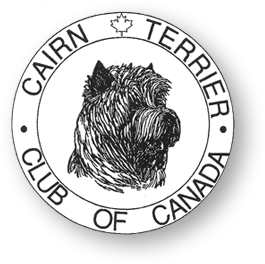All puppies should attend at least a basic training class and preferably more – but not all training classes are equal. Dog training is an unregulated field, so it is critical that you make wise decisions about trainers and training classes. This is especially true if you are looking to address behaviour concerns like fear or aggression. Many correction-based trainers claim quick fixes – but those fixes often result in ‘learned helplessness’ (the dog looks calm, but the behaviour has simply been suppressed and may emerge later in even more serious form).
Remember that training classes are primarily to train YOU – not the dog. If you want your dog to become proficient, regular training sessions at home are critical.
What should I look for in a good trainer / training class?
1. Instruction is based on positive reinforcement, using a marker (clicker or verbal marker) without use of corrections (such as collar pops, yanking on the leash, verbal corrections etc). Food reinforcers are effective for most dogs. This does not mean that all training has to be done using food but trainers that reject use of food reinforcers rarely have purely positive training methods. Positive reinforcement based training is highly effective and will support the development of a strong relationship with your dog. It will not cause aggression, anxiety or fear, nor will it, if properly done, result in your dog only responding to cues when you have food in your hand.
2. The instructor does not use, or recommend, aversive devices such as e collars, pinch or prong collars, alpha rolls, penny cans, squirt bottles etc. Avoid trainers that promote dominance, pack leader or correction based training or so-called ‘balanced training’. Here is a good article about dominance theory and why it is not a good foundation for training. https://drsophiayin.com/philosophy/dominance/
3. If possible, observe a class in progress before signing up (many instructors are willing to allow you, without your dog, to sit in on a class. While observing the class take note of the demeanor of the dogs in the class and how the instructor interacts with both handlers and dogs. You want to dogs that are happy and engaged. If any dogs are showing signs of stress, you want to see the trainer working with the handler to put the dog at ease.
4. Instructor/ helper to student ratio is between 5 and 8 dogs
5. If free play is included as part of the class, play periods are carefully supervised by the instructor. Instruction is provided on body language, how to determine if a puppy is not enjoying the experience and how to intervene if there is bullying, humping or overly excited play. Play sessions should be brief with frequent cool down periods. The selection of puppies to play together should be carefully curated so that play styles match and no puppies are being overwhelmed.
6. The instructor is knowledgeable, communicates well and quickly establishes good rapport. The instructor is respectful of questions, answers clearly and gives individualized feedback to help you master training techniques. A good instructor will manage the class so that timid puppies are made to feel comfortable and gain in confidence. No puppy should ever be forced to do something – whether by physical manipulation or heavy luring and coaxing.
7. Avoid turning your dog over to someone else to train (Day Training, Board and Train). Many of these are based in ‘quick fix’ correction based training techniques that can lead to serious long-term adverse consequences. If you are not present while your dog is being trained, you are not able to advocate for your dog, or choose to remove him from the situation if inappropriate techniques are being used.
What should I do if I end up in a class that seems wrong for my dog?
- Talk to the trainer about your concerns. If your dog is timid, there may be ways the trainer can help you make this a more positive experience for your dog – increasing distance, visual barriers, a different class etc.
- Don’t be afraid to walk away if your dog is showing increasing fearfulness, if the instructor is using, or pushing you to use, correction based techniques.
- Opt out of activities (like free play) if they are not appropriate for your dog or if free play is not carefully supervised.
Below is a list of selected trainers who are committed to Force Free - Positive Reinforcement Based training. As with selecting a breeder, this list is not a substitute for doing your homework and verifying that the class meets your needs.
This list is a work in progress. If you have information about instructors / clubs / groups that are committed Fear Free / Positive Reinforcement based trainers in your area please contact and we will be happy to connect with them about a listing. We cannot provide recommendations for every geographic location, but trainers in your wider geographic area may be able to recommend someone closer to you.
Club Members who offer training
Ontario (Whitby)
Jan Morgan: Paws-itive Puppies cabaretcairns.com
Saskatchewan (Saskatoon)
Jeannette Hargreaves: Pawsitive Concepts
Alberta (Okotoks / South Calgary)
Karen McClean: Wags to Wishes K9 Training, tarahillcairns.com
British Columbia (Richmond)
Shelley Cherkowski: cairnheartk9.ca
Other Trainers
Maritimes
Dartmouth, N.S.: Barbara Deg: frontnscenter.com
Quebec
Ontario
Etobicoke: Julia Mueller treatpraiselove.com
Belleville: Yvonne Ferguson quintecanine.com
Manitoba
Brandon: Crocus Kennel and Obedience Club: crocusdogs.com
Brandon: Two Brown Dogs: twobrowndogs.tripod.com/
Winnipeg: Dumbledogs: dumbledogs.com
Winnipeg: Clicker Hounds (Amber Overwater, CPDT-KA CTDI) clickerhounds.ca
Saskatchewan
Saskatoon: Axelan Dog Training: axelan4gsd.wixsite.com/axelandogtraining
Alberta
Calgary: Sit Happens!: https://www.sithappens.org/
Red Deer: https://nosey-pawtners.business.site/
British Columbia
North Saanich: Meriadoc Dog Sports meriadocdogsports.com
North Saanich: Dog Obedience Club nosa.ca
Kelowna: Marla Williamson jazzsgroominganddoggiedaycare.weebly.com
150 Mile House: Alycia Rogal freelifecanine.ca
Comox Valley - Campbell River: Karen Share discoveriesdogtraining.ca
